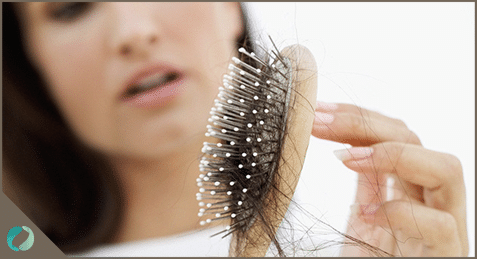Chemotherapy – 5 Things You Need To Know About Hair Loss
“Chemotherapy sucks… but if it sucks the cancer out of you, then yay chemotherapy!” Chemotherapy is a cure that people fear. You have heard so many stories about it that you are oscillating between hope from taking the cure and fear from its side-effects. One of the side-effects that probably worries you the most is losing your hair. You’ve been told to expect it. You’ve seen other cancer patients around you with it. But you don’t really know what it is. We at Papillon Hair World get a lot of questions from our clients about the how, what and why of hair loss from chemo. This article is designed to address these questions through our founder Dr. Vinay Koparkar’s expertise and our 28 years of experience in hair and skin problems.
- Chemotherapy affects hair follicles too and causes hair loss.
Chemotherapy affects all the cells in your body, not just the cancer cells. Your hair follicles, like cancer cells, are rapidly dividing cells. Since chemotherapy is designed to target these kinds of cells, hair loss is a common side-effect of chemotherapy. So, hair loss from chemo means that the chemotherapy is doing it’s work in fighting your cancer. To know more about Best Wigs For Chemo Patients.
- Hair loss affects a majority of patients, not everyone.
While a majority of patients experience hair loss due to chemotherapy, not every patient will suffer from it. Whether or not you’ll have hair loss depends on the drug and the dosage you will be prescribed. Talk to your oncologist about the likelihood of hair loss from the treatment you will be receiving so you can gear yourself up and be better prepared to tackle it.
- Every patient suffers differently from hair loss during chemotherapy.
Hair loss from chemo doesn’t always follow a set pattern in all patients and the uncertainty about it can make it overwhelming. Hair loss from chemo can be sudden or slow. Typically it begins on the 15th or 16th day of the first 21 day cycle of chemotherapy treatment and continues for a week after that. You may lose all of your hair, or some of it. Patients can lose up to 70% of their hair about 48 hours after the second chemo cycle. It often occurs in clumps rather than even patterns, so not every patient will see the same pattern of hair loss.
- Your hair will start to grow back after treatments.
There is a silver lining to this cloud. Hair loss from chemo is not forever. Your hair will start to grow back after your chemotherapy cycles are done. Hair growth after chemotherapy varies like the hair loss during it. Your hair may start to grow back any time between 1 month or 6 months after your last chemotherapy cycle. Your new hair can be of different colour, texture or curl, so gear yourself up for it to look different.
- You can be prepared to manage it.
We cannot direct the wind, but we can surely adjust the sails. It is undeniably a stressful experience to lose your hair, especially for a woman. But there are simple things you can do to manage hair loss from chemo. Doing them can help you cope better with the changes you will see in your appearance, without undue stress on your social relationships or your self-esteem. Read our next article about how to better tackle hair loss during chemotherapy.





